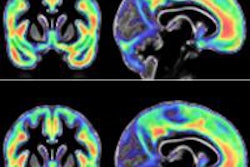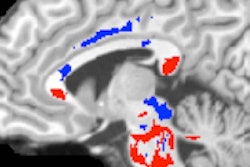Changes in white matter can occur in the brains of athletes six months after a concussion, meaning that athletes may still experience long-term effects even after they have recovered from the injury, according to a study presented this week at the American Academy of Neurology (AAN) Sports Concussion Conference in Chicago.
Researchers from the Medical College of Wisconsin in Milwaukee analyzed 17 high school and college football players who experienced sports-related concussions. The players underwent MRI brain scans to assess concussion symptoms, balance problems, and cognitive impairment. The study also included 18 matched athletes who had not had a concussion as control subjects.
Diffusion-tensor MRI (DTI-MRI) and diffusion kurtosis tensor MRI (DKT-MRI) scans were performed 24 hours, eight days, and six months after injury on all subjects to look for acute and chronic changes to the brain's white matter. The two MRI techniques are designed to track the movement of water molecules in brain tissue and measure microstructural changes in white matter, which connects different brain regions.
MRI revealed that the concussed athletes had less water movement, or diffusion, in the acute stages following concussion at 24 hours and at six days, compared with the healthy controls. The microstructural changes remained six months after the injury, and concussed athletes with more severe symptoms at the time of the injury were more likely to have alterations in the brain's white matter at the six-month mark.
Study author Melissa Lancaster, PhD, said the findings provide important information about how to manage concussions and determine recovery in concussed athletes. Additional research is needed to determine how these changes relate to long-term outcomes, she added.



















